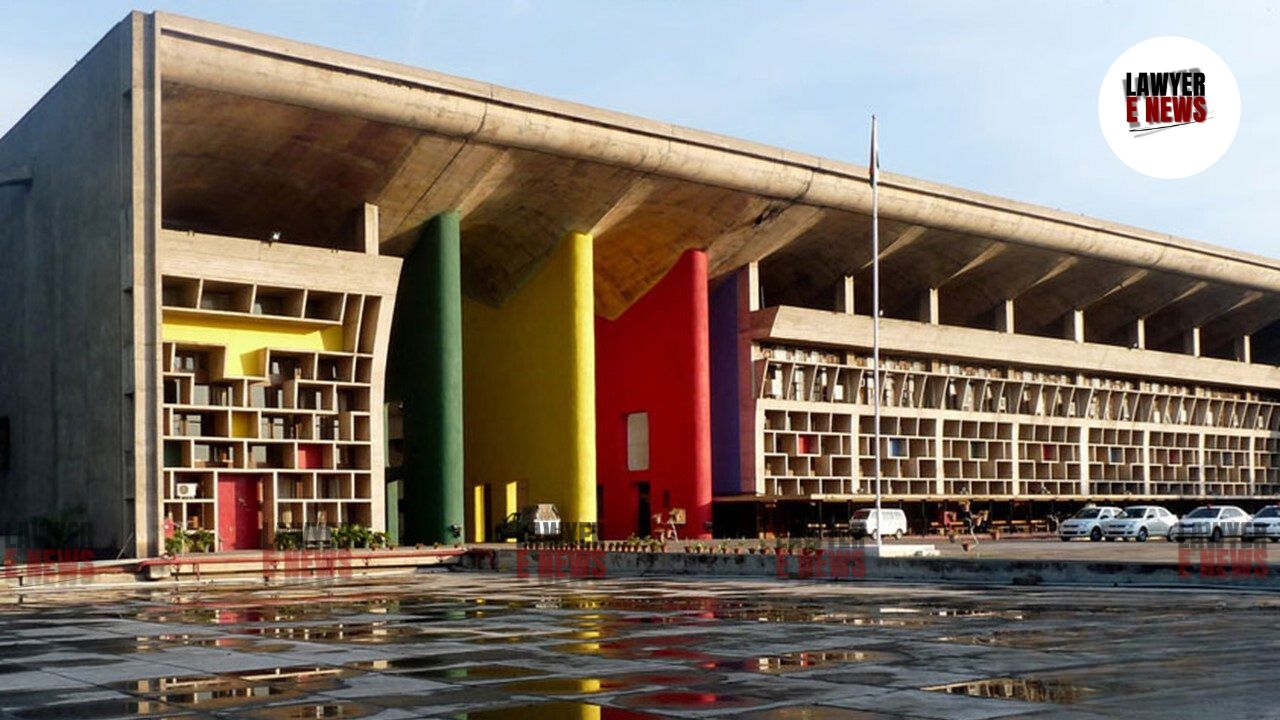-
by Admin
15 February 2026 5:35 AM



“The legal profession is a noble profession, governed by ethics. No lesser punishment can be substituted for the penalty prescribed under the regulations.” – Punjab and Haryana High Court
Punjab and Haryana High Court delivered a significant ruling in Randeep Singh v. Panjab University and Others, rejecting a plea to reduce the two-year disqualification imposed on a law student for using unfair means during an examination. The Court upheld the penalty under Regulation 5(a) and Regulation 8 of the Panjab University Calendar Volume II, 2007, emphasizing the necessity of integrity and ethical conduct in the legal profession.
The petitioner, Randeep Singh, a B.A. LL.B. student at Panjab University, was disqualified from appearing in university examinations for two years after being caught with handwritten notes during his first-semester Law of Contract examination in December 2023. The malpractice was documented as the notes were found copied onto pages 16 and 17 of his answer book.
Following the incident, a show-cause notice was issued, and a committee hearing was conducted. Based on the findings, Panjab University imposed a two-year disqualification under Regulations 5(a) and 8 of its Calendar. The petitioner sought review of the penalty, which was rejected by the Vice-Chancellor.
Aggrieved by the decision, the petitioner filed a writ petition under Articles 226/227 of the Constitution, arguing that the punishment was disproportionate and detrimental to his academic and professional career.
Proportionality of Punishment – Whether the two-year disqualification under Regulations 5(a) and 8 was excessive and warranted reduction.
Key Observations and Court Ruling
Regulations Prescribe Mandatory Punishment
Justice Jasgurpreet Singh Puri emphasized that the punishment under Regulations 5(a) and 8 is mandatory. Regulation 5(a) specifically prescribes a two-year disqualification for candidates caught with “malafide possession of any material,” including notes relevant to the examination.
Regulation 8 further elaborates that copying or aiding in copying during examinations also leads to similar disqualification.
The Court ruled that:
“The punishment provided under the Regulations is clear and mandatory. There is no reason for this Court to substitute a lesser punishment, particularly when the offense has been proven.”
Integrity and Ethical Standards of Legal Profession
The Court highlighted the importance of ethical conduct, especially for a law student aspiring to join the legal profession.
“The petitioner is an LL.B. student and would be a future lawyer. The legal profession is a noble profession and is governed by ethics. Allowing any leniency in such cases would undermine the integrity of the profession,” the Court observed.
The petitioner’s counsel argued that the two-year disqualification was disproportionate and could irreparably harm the petitioner’s career. However, the Court rejected this contention, stating that proportionality must be viewed within the framework of prescribed rules.
“When regulations expressly prescribe the punishment for a proven malpractice, proportionality cannot be a ground for judicial intervention. This Court does not find it appropriate to grant indulgence under Article 226 of the Constitution,” the Court noted.
The Court upheld the two-year disqualification imposed by Panjab University and dismissed the petition. It reiterated that integrity in academics is paramount, particularly for students in the legal field, where adherence to ethical standards is non-negotiable.
Date of Decision: November 5, 2024
